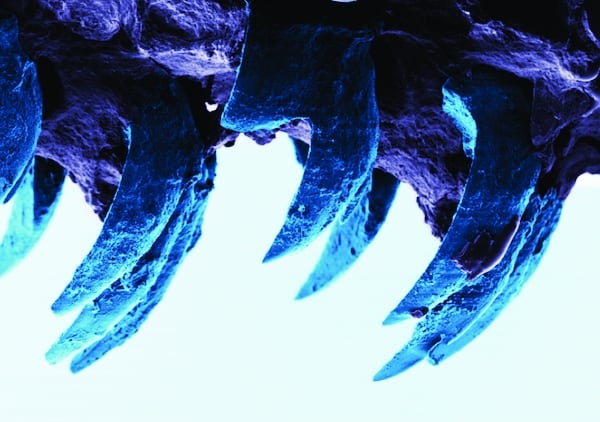World's strongest natural material found in limpet teeth
Researchers have found that limpet teeth possess biological structures so strong they could be copied and used in the structure of cars, boats and planes of the future.
The study from Portsmouth University examined the small-scale mechanical behaviour of teeth from limpets using atomic force microscopy.
In a statement project leader Prof Asa Barber from the University’s School of Engineering said: ‘Nature is a wonderful source of inspiration for structures that have excellent mechanical properties. All the things we observe around us, such as trees, the shells of sea creatures and the limpet teeth studied in this work, have evolved to be effective at what they do.

‘Until now we thought that spider silk was the strongest biological material because of its super-strength and potential applications in everything from bullet-proof vests to computer electronics but now we have discovered that limpet teeth exhibit a strength that is potentially higher.’
Prof Barber found that the teeth contain goethite, a mineral that forms in the limpet as it grows.
He said: ‘Limpets need high strength teeth to rasp over rock surfaces and remove algae for feeding when the tide is in. We discovered that the fibres of goethite are just the right size to make up a resilient composite structure.
Register now to continue reading
Thanks for visiting The Engineer. You’ve now reached your monthly limit of news stories. Register for free to unlock unlimited access to all of our news coverage, as well as premium content including opinion, in-depth features and special reports.
Benefits of registering
-
In-depth insights and coverage of key emerging trends
-
Unrestricted access to special reports throughout the year
-
Daily technology news delivered straight to your inbox










National Gas receives funding to develop Gravitricity underground hydrogen storage system
One single rock salt mine - Winsford - has 23 <i>MILLION </i>cubic metres of void and even allowing for 10% of that void set aside for hazardous waste...